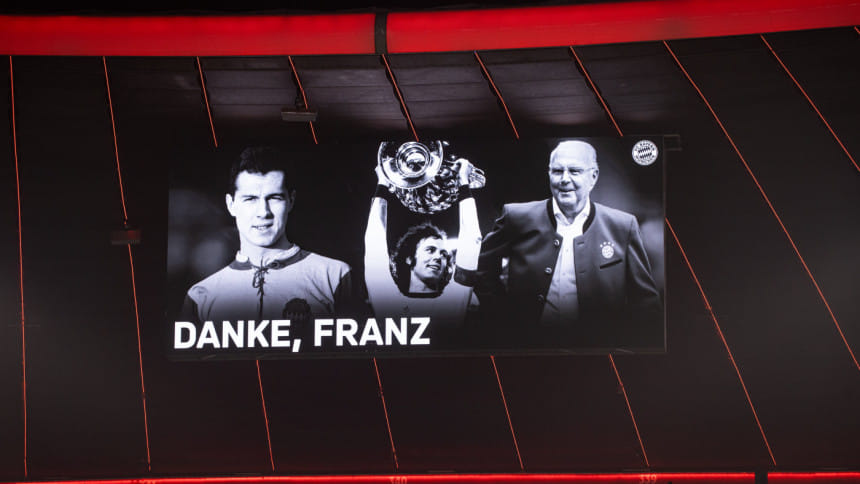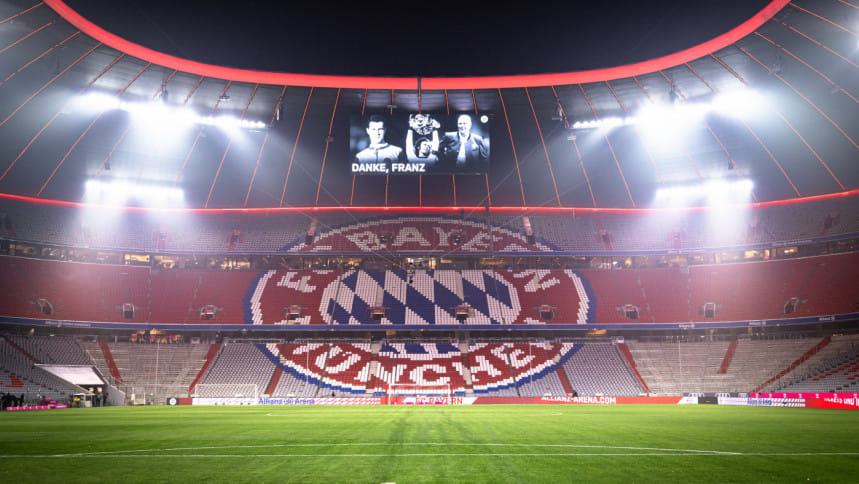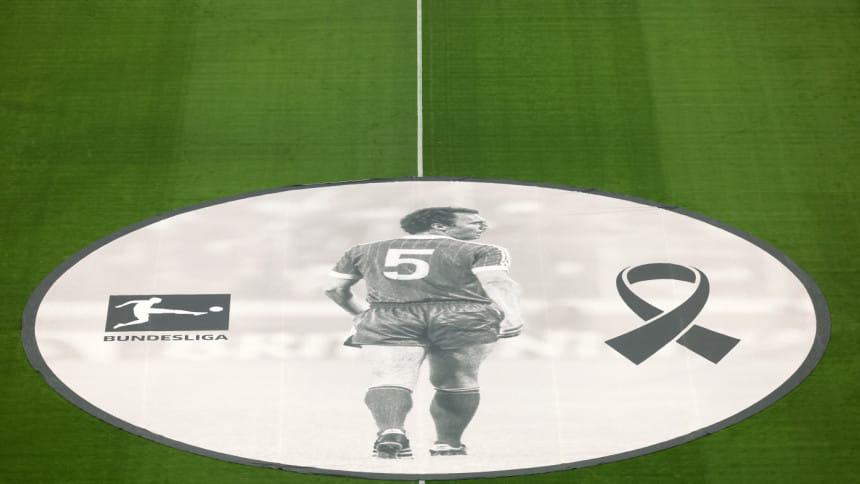Munich's Allianz Arena prepares for final Beckenbauer farewell

Bayern Munich's Allianz Arena will bid a final farewell to Franz Beckenbauer on Friday as tens of thousands of people pay their respects to the German football legend.
Beckenbauer died on January 7 in the Austrian city of Salzburg aged 78 and was buried in Munich five days later at a service attended by close friends and family
Friday's commemoration, to be held at the 75,000-seat home stadium of Bayern Munich, the club with which Beckenbauer will be forever associated, will give the public a chance to say goodbye.

Thousands are expected to attend the ceremony, including German Chancellor Olaf Scholz, President Frank-Walter Steinmeier, Bavarian Premier Markus Soeder and honorary Bayern president Uli Hoeness, who played alongside Beckenbauer in the 1960s and 1970s.
The pair then worked alongside each other as they grew the club into Germany's richest and most influential.

The football world will also be in attendance, including representatives from European giants Real Madrid and Barcelona.
Beckenbauer's former teammates Paul Breitner, Guenter Netzer, Wolfgang Overath and Rainer Bonhof will attend, as will several players he coached to the 1990 World Cup.
Lothar Matthaeus, Andreas Brehme, Klaus Augenthaler, Pierre Littbarski, Guido Buchwald, Olaf Thon, Rudi Völler and Karlheinz Riedle are all expected to take their place in the stands.
Former Munich managers Hansi Flick, Julian Nagelsmann, Felix Magath and Niko Kovac will also pay their respects.
The house Franz built
Other than being among Germany's largest stadiums, the choice of venue is appropriate given the central role Beckenbauer played in the creation of the arena.
Bayern moved from their Olympic Stadium home to the Allianz during Beckenbauer's presidency.
Despite Bayern's history at the venue, the move north from the stadium built for the 1972 Olympics to a modern, world-class arena was a major step in securing Bayern's future as one of Europe's powerhouse clubs.
Bayern have won two of their six Champions League titles since moving into the stadium, while the club is currently on a streak of 11 straight Bundesliga titles.
Beckenbauer's impact as an administrator mirrored his success as a player and coach.
Born in Munich, Beckenbauer helped Bayern, then the city's second team behind rivals 1860, to be promoted to the Bundesliga for the first time.
From there, Beckenbauer won league and cup titles in Munich, followed by three straight European Cups, the precursor to the modern Champions League.
At international level, he won World Cups both as a player and a coach. He was recognised as the world's best player by winning the Ballon d'Or twice, in 1972 and 1976.

 For all latest news, follow The Daily Star's Google News channel.
For all latest news, follow The Daily Star's Google News channel. 








Comments